MARTIALFORCE.COM
PRESENTS
AN INTERVIEW WITH
MASTER ABDUL AZIZ

“We must put the fight back into our kata.”
Interview by Haisan Kaleak
Martialforce.com
Online Magazine
My name is Haisan Kaleak and welcomed to Martialforce.com Online Martial Arts Magazine. In the world of Martial Arts there are the people that make a difference in other peoples lives and on the flip of the coin there are people with there own idea of how things should or shouldn’t be. As people enter the local Karate school there are always the “what if” thoughts that plague the mind which is understandable because the commitment to the discipline of mind, body and spirit is not a decision taken lightly. Within this there are those that rise to and earn the level of a champion through action and perseverance. Only the truth stands the test of time and if you are true to any endeavor your longevity becomes evident.
It is different when you know a person and have seen them come up from there younger days and develop into the mature individual that everyone respectfully calls Sensei. In the case of the person I am writing about, Master Abdul Aziz, we have known each other for many years through the tournament circuit and Martial Arts community in general. It has and always will be a mutual respect of our arts and training that bond us in the brotherhood that is Karate. I can tell you with sincerity that Master Aziz is a person of high integrity and has a passion for teaching the youth of our society. He trains diligently and still competes because as leaders go, he is one that leads by example. It is my honor to bring to you this interview with Master Abdul Aziz.
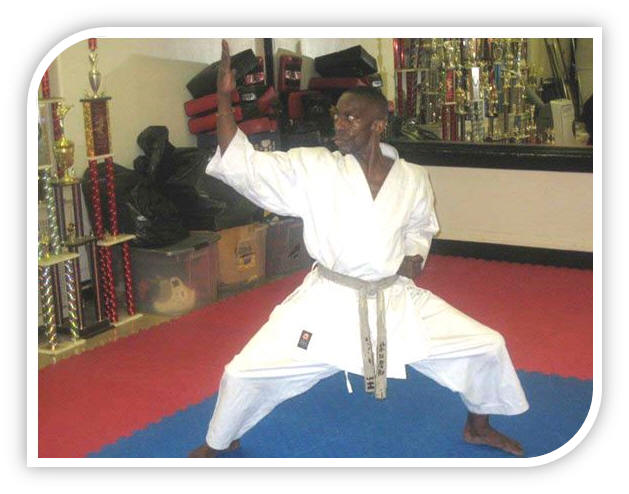
Martialforce.com: Can you tell our readers where you were born and raised?
ABDUL AZIZ: I was born in the old Lincoln Hospital; I was raised in the south Bronx, at what was considered the notorious 1420, 170 street, Washington Ave.
Martialforce.com: What was your initial contact with Karate and who was your instructor?
ABDUL AZIZ: I was 8 years old when I saw my brother throw a kick in the living room of my Mothers apartment. He became my Sensei (Teacher) on the spot in 1965/ 1966.
Martialforce.com: Why did you choose the Shotokan style of Karate to study?
ABDUL AZIZ: I met Master Derrick Williams in the 1970s and both he and I hit it off as friends. Master Williams gave me private lessons for about a year; from his trainings I knew right away that Allah had connected us. I knew that I had found the system that Allah had planned for me to master.
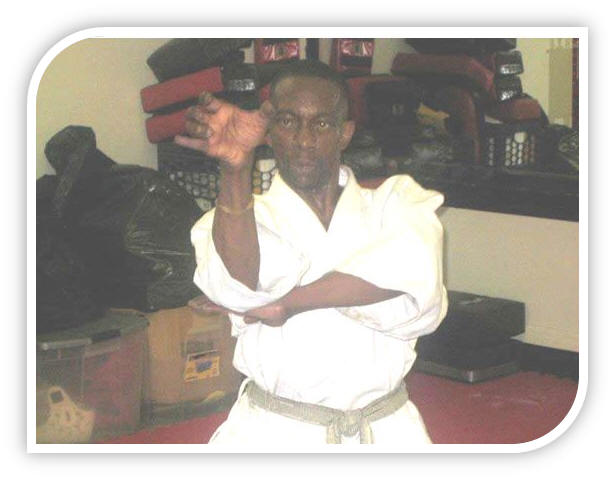
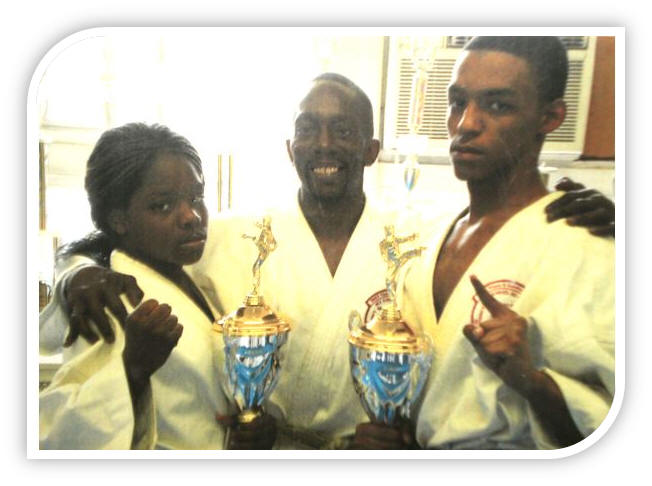
Martialforce.com: What was the training like from a day-to-day standpoint?
ABDUL AZIZ: When I first started training I couldn't handle the workouts; but winners never quit and quitters never win so I chose to be a winner. I have been winning in life ever since. I pushed myself and trained seriously to achieve success, nothing came easy but I am living proof that you can succeed when your frame of mind is focused.
Martialforce.com: Everyone learns from various people, can you tell us some of the people that helped in your Karate development?
ABDUL AZIZ: I have been blessed to have some legendary Masters who took me under their wing. My first Sensei’s were in the following order, Shihan Yahkie Allah, Master Derrick Williams, Soke Nathaniel McBride, Soke Reno Morales, Soke Hakim Bilal and Shihan Adriel Muniz. In addition, to these are the many masters who also contributed to my Martial arts development and training. (GM Thomas Lapuppet, GM Fredrick J Hamilton, GM Leon Wallace, GM Moses Powell, GM Abdul Mutakirbir, GM Errol Bennett, GM Little John Davis, GM Lamar Thornton, GM Sam Mc Gee, GM Nathan Apollo Ingram, GM Gorge Crayton, Master Phil McCray, Master Billy Blanks, GM Ron Van Clief, GM Chaka Zulu, GM T. Miyazaki, GM H, Kanazawa, GM Kenneth Funakoshi, Master Tommy May, GM Luis Morales, Master Abdul Moucson, Fire Fox Shian. Shihan Jadi Tention. There are many more who shared with me their knowledge like your self, (Soke Haisan Kaleak.) I thank all of the many Masters who contributed to my growth.
Martialforce.com: Our research shows that you have competed in Karate tournaments for many years. Can you name some of your toughest competitors?
ABDUL AZIZ: There have been many; I will name some of the ones that stick in my head. Jerry Fontanez, Billy Beason, Kevin KA Thompson, Thunder Foot Currington, Billy Blanks student George, George Crayton’s students, William Oliver, Mike Dean, Sam Roberts, Kevin Twin Garris and many more. Those were the fighters I competed against.
These are some of the names in kata competition; Toyotaro Miyazaki, William Oliver, Derrick Williams, KA, Haisan Kaleak, Joseph Craig, C, Rothrock, George Chung, Kai Lung, Steward Kwan, and many great kata practitioners that competed at that time. All of which had the fight in their Kata with focused skill and tenacity. We must put the fight back into our kata.
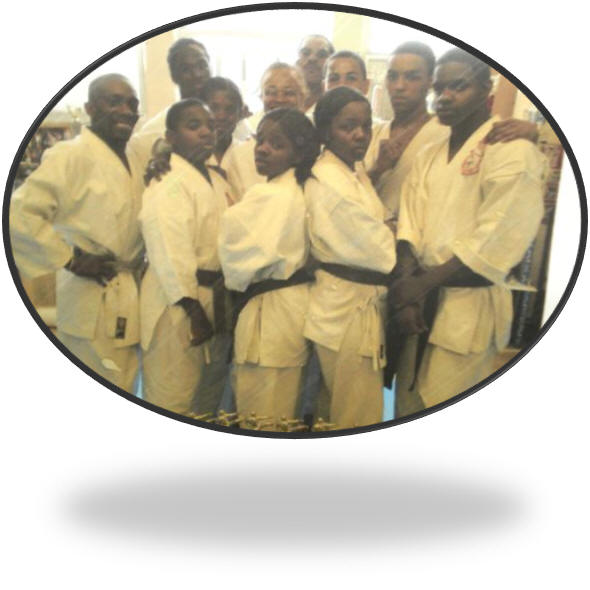
Martialforce.com: Do you believe that tournament competition is good for your students and if so, why?
ABDUL AZIZ: Tournaments are great for my students but not all tournaments. Tournaments help the student to train at a higher level, preparing for each event. Performing at tournaments increases the student’s energy level. Performing in the dojo is way different then when at a tournament. Sparring with equipment all the time can throw the students ability off to fight with certain techniques, like finger jabs, elbow strikes, knee kicks, stomps, etc. I teach street fighting in my school. The majority of the time we spar (Controlled Fighting) with no safety equipment for a much-needed sense of realty. This also shows the student how to punch, strike and kick with realistic hitting surfaces which in turn teaches control.
In regards to my own days of Competition, regrettably, I have decided to retire from the circuit. This will be my last year of competition. My reason is the increasing emphasis on more commercial sport based presentations over traditional karate. I have observed increasingly narrow-minded attitudes among tournament judges, referees and athletes, who prevent truly fare competition from unfolding. The very issues the art seeks to eradicate, plagues the tournament scene from the administration level down to the individual competitor. To me competition has become a facade, because in my opinion it represent everything it is not. I have lost the positive feeling I once embraced and rewarding benefits that I once knew in the competitive arena. In my opinion the majority of black belts on the circuit could not deal with a real street fight where someone is trying to kill you or just beat you down.
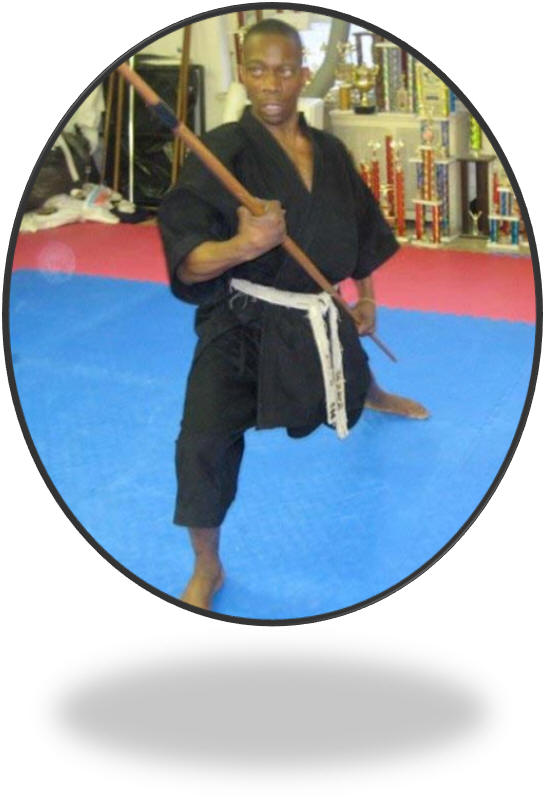
Martialforce.com: Our research shows that you have competed in the weapons division as well as empty hand and fighting. My question is, what got you interested in weapons and do you believe that all practitioners should add its practice to there routine?
ABDUL AZIZ: My kobudo (Weapons) training came from Shihan Adriel Muniz. He passed away at the young age of 33. He was very talented and taught me the Bo techniques and kata. He is greatly missed by me and all the students he left behind.
In my opinion, I do not feel that weapons are for all participants’. Weapons are something that becomes a part of your body & soul. I love my weapons. You must want to learn weapons or you can get seriously hurt with a sharp blade for example, if you and your weapon aren’t one.

Martialforce.com: Do you cross train in regards to running, weight lifting etc?
ABDUL AZIZ: Yes, I love cross training. I do a lot of calisthenics; I also love to swim, weight lifting, basketball, aerobics, etc. Cross training enhances your strength and endurance and adds a positive note to whatever you’re practicing. It will keep you in best physical condition.
Martialforce.com: Do you believe Kata is a necessary practice in Karate and if so, why?
ABDUL AZIZ: Kata is the Blue Print of Karate. Kata pre-conditions the body to synchronize with the mind so that when you are attacked your response is automatic and precise. It has been a proven method for countless years in regards to training. While there are many ways one can progress, Kata has been the most effective thus far in Martial Arts. It gives you longevity with the addition of a library of technique. Kata is Karate and its roots are solid.
Martialforce.com: What is a typical day of Karate training like in regards to your own personal routine?
ABDUL AZIZ: I get to the dojo at 10 am; I normally have a weight training, pull up and push up work out with my brother Prince. At 1pm I train my Montessori gym period with a class of 15 students in an hour of basics, conditioning and stretching. I then have a group of about 6 students who I teach from 2pm to 3pm. We work on sparring, kata, heavy bag work, conditioning and basics. At approximately 3pm to 345pm everyday I train the wellness group. We do 45 minutes of cardio training. From 4pm to 6pm I teach my regular class of about 30 students. We perform all the above routines and exercises in with the addition of tournament preparation. On Saturday from 12 noon to 3pm I teach for the full duration of three hours. That is always fun, strenuous and exhausting at times. I train 3 times a week on Tues, Thursday and Friday nights.
In all the classes I mentioned I don’t just stand in front of them and order them to train but instead participate physically, 100 percent in every class because I love training.
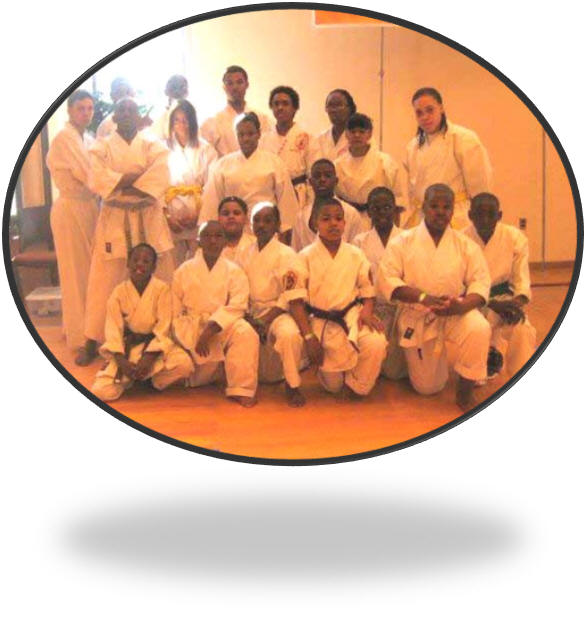
Martialforce.com: Do you train your students with the same discipline and intensity that you experienced in your beginning?
ABDUL AZIZ: No, when I was coming up the training was more survival orientated than for tournaments. Also working for a nonprofit organization there are a lot of liability issues involved. At the same time I push it to the limit. I am a very strict Shihan. I visit schools; I have young men’s & young women groups, hygiene workshops, scared straight workshops. Anything to raise their awareness and develop a sense of discipline. Oh, and a lot of knuckle pushups, Lol.
Martialforce.com: Do you think there is such a thing called Urban martial arts in regards to street fighting tactics as oppose to traditional training?
ABDUL AZIZ: I call urban martial arts, life and death techniques. Allot of the deadly techniques have been made less dangerous for safer practice. Urban martial arts techniques are life and death. Techniques might consist with using a broken bottle, choking techniques, arm breaks, eye gouging, biting, etc. So yes there is a difference. All techniques can be found within the systems that are practiced but the focus must be on survival and not sport in regards to appreciating their use.
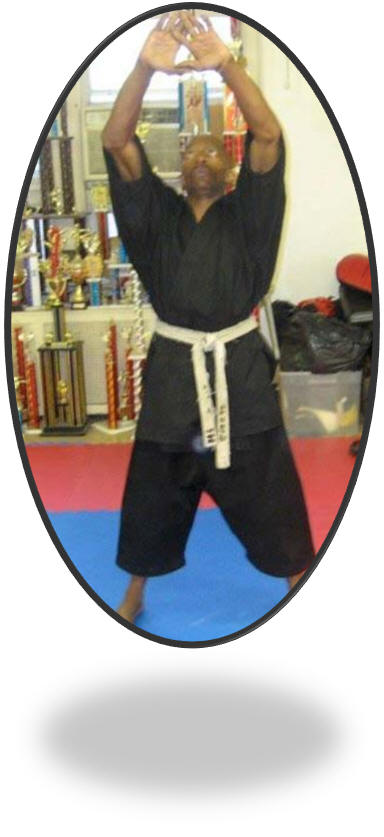
Martialforce.com: What is your definition of traditional karate?
ABDUL AZIZ: Traditional Karate is strong basics couple with a determined mind to result in a confident and humble person. If you are confident in the use of your Karate then you have no need to constantly validate its effectiveness by injuring anyone. In answer to your question, if it is practiced with passion, strength and mental focus then this is Karate.
Martialforce.com: Our research shows that your involve in a wellness challenge, can you tell our readers how and why you became involved?
ABDUL AZIZ: I have asked my director for years if I could have a special training group for obese children. HCZ INC came up with the challenge. They wanted 20 HCZ sites to pick 20 children from each site, and train them. The challenge being, who ever lost the most weight in 6 months he would be sent on a trip to Disney World? CNN covered the event; it aired on Blacks in America on CNN. We won the challenge by loosing 130lbs total. The event was a success: Geoff Canada has started another challenge for this year. Only this time it’s with 40 students that are obese. We get weighed every week by HCZ INC staff. TRUCE Fitness Center Karate is in the lead at this time. Were going back to Disney World.


Martialforce.com: You had a lot of recognition with the name Kendu Allah, why did you change it?
ABDUL AZIZ: I met a Muslim brother by the name Amir Latif; he invited me to juma service at the mosque. It was there that I decided to make life changes and my name was part of my decision. The name Abdul means servant of god.
Martialforce.com: What would you say is the difference between training in the 1960/70’s as opposed to nowadays?
ABDUL AZIZ: In the 1960s there was no safety equipment. The Fight training was for the most part full contact and almost every thing went, elbow strikes, knee kicks, stomps, shin kicks. I learned how to defend my self real fast. Knockouts and severe injuries were a commonplace occurrence.
Martialforce.com: What are your long-term goals in Karate?
ABDUL AZIZ: My main goal is to continue to develop my karate and improve while helping as many people as I can to understand the value of training.
Martialforce.com: Our research indicates that you have had training in Aikido, can you tell us who your instructor was?
ABDUL AZIZ: My Aikido training came from Master Abdul Hakim Bilal. I was in my teens about 18 or 19 years old. Master Bilal was there for me when the streets had me; he helped me to get on the straight path.
Martialforce.com: Thank you for this interview, it has been our pleasure to have you on martialforce.com and we wish you all the continued success.
ABDUL AZIZ: Thank you for allowing me to have this platform to express my views and opinion, Domo Arigato Gozaimasu Soke Haisan kaleak and Hanshi Eddie Morales.

2011 WINNER TEAM COMPETITION IN SPAIN
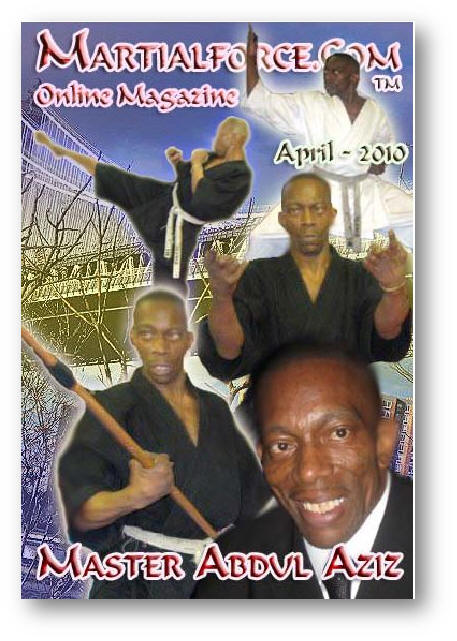
ABDUL VS SABU LEWIS 1985
To Martialforce.com